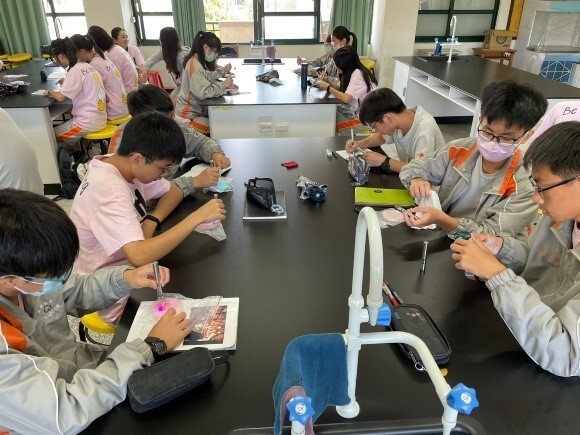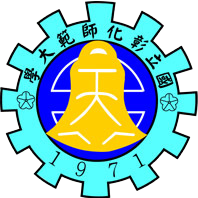SDG1.3.1 Bottom financial quintile admission target Year: 2021
To eliminate all forms of poverty, ensure the rights and interests of the poor and disadvantaged groups to be educated, and implement social protection measures, NCUE takes the following measures to assist domestic low-income students or other students who meet stricter standards:
1.NCUE has implemented the Higher Education Sprout Project and the Flying Eagle Project (aid for economically disadvantaged students) to help disadvantaged students receive a university education.
With the momentum of the Higher Education Sprout Project, NCUE high school students come from diverse backgrounds. NCUE encourages its departments to actively provide enrolment quotas for disadvantaged students, waives their registration fees, provides transportation and accommodation subsidies for ‘individual applicants’, and holds seminars at high schools and vocational high schools. In 2022, NCUE started offering the Caring for Regional High Schools and Vocational High Schools micro-course activity to attract more students from families in Taiwan’s lowest 20% income group to study in NCUE. As of the end of July 2022, there were 402 students that income group studying at NCUE, accounting for 5.6% of all students.

Photo:Students use ultraviolet light and photosensitive powder to understand the experimental principle at Taipei Municipal Chenggong High School
2.NCUE has introduced tuition subsidies for disadvantaged students and a better enrolling and learning mechanism to increase social mobility. In 2021, NCUE admitted 66 disadvantaged students, accounting for 34.5% of all applicants.
Our institution is committed to providing opportunities for disadvantaged students (e.g., aboriginal, physically and mentally challenged, economically disadvantaged): (1) All departments are encouraged to provide sufficient additional places for aboriginal students through different channels to increase their chances of admission. (2) Our institution provides multiple admissions channels (e.g., individual applications, admission by recommendation, and screening) for disabled students to increase their chances of entering the University.
To increase disadvantaged students’ chances of entering NCUE and effectively promote social mobility, NCUE’s Flying Eagle Project lowers the General Scholastic Ability Test screening criteria, waives registration fees, and cancels interviews (only a paper application is required) for ‘individual applicants’. NCUE values the students’ learning motivations and their learning and growth endeavours and seeks to prevent their economically disadvantaged backgrounds from becoming obstacles to their applications. Since the beginning of the 2018 academic year, NCUE has taken supportive measures for the disadvantaged in the second stage of the admission tests for ‘individual applicants’, giving admissions priority to the children of low-income households, low- and medium-income households, and families in hardship and relaxing the admission criteria for the second stage. In other words, the departments give disadvantaged students who enter the second stage of NCUE’s admission tests priority admission even if they do not meet the admission criteria. The test fees are waived for ‘individual applicants’ from low-income households, low- and medium-income households, and families in hardship who apply to study in general departments and have signed up for the second stage of the admission tests of designated items. NCUE also offers subsidies to cover their round-trip transportation and accommodation.
Additionally, to enhance the admission opportunities of economically disadvantaged students (low-income households, lower-middle-income households, and families with special circumstances) and effectively promote social mobility, starting from the 107th academic year, our institution increased measures to support the disadvantaged students in the second stage of the “Individual Application” screening process to give priority to economically disadvantaged students. Moreover, starting from the 108th academic year, a new Flying Eagle admission project sub-section has been added to the university’s “Individual Application” admissions pipeline to adaptively adjust the testing and selection criteria and streamline the screening process to increase admission opportunities for economically disadvantaged students.
In 2020, different departments at NCUE provided 131 admission enrolment quotas to economically disadvantaged individual applicants (children of low-income households, low- and medium-income households, and families in hardship). In 2021, 131 students applied, and 66 students were admitted to NCUE. See Annex 1.3.1A for the relevant admission measures and results.

